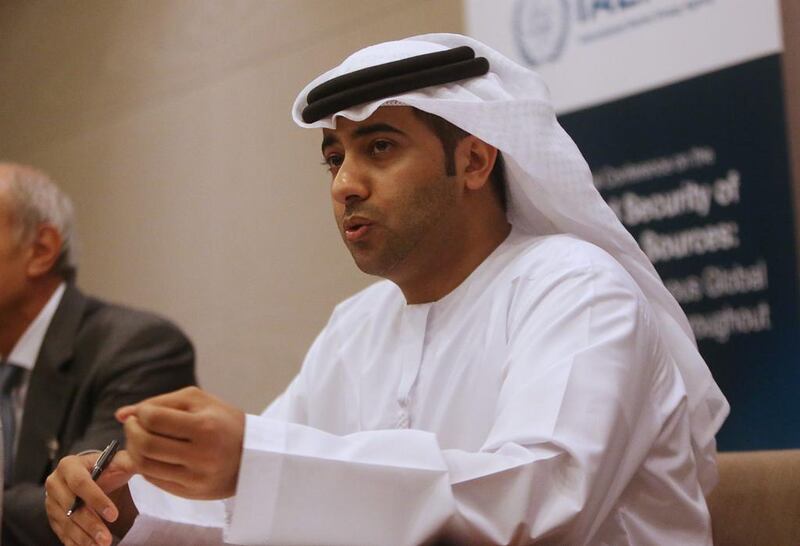ABU DHABI // Nations were urged to improve security in the use and disposal of radioactive materials at a nuclear energy forum on Sunday.
The International Conference on the Safety and Security of Radioactive Sources, hosted by the Federal Authority for Nuclear Regulation and the International Atomic Energy Agency (IAEA), gathered more than 400 experts from 100 countries to review current safety and security practices.
“Radioactive sources are extensively used for beneficial purposes around the world in medical, industrial, agricultural, research and educational applications,” said Hamad Alkaabi, the UAE’s permanent ambassador to the agency, the United Nations’ nuclear watchdog.
“Ensuring their safety and security has been a matter of global attention over the past decade. Improvements have been made, but accidents with significant consequences still occur and there remains security concerns.”
These accidents include the loss or theft of radioactive materials.
“They’re used in many fields where people work on building sites, or transported in a small car from one site to another,” said Denis Flory, the deputy director general of nuclear safety and security at the agency.
“That’s not exactly the sort of regulatory framework that is used in nuclear power plants. The use of the materials is pervasive in society, and it needs to be controlled.””
Officials from the police, customs and safety fields, regulators, ministries and legislators from the UAE and around the world will spend the next week discussing their experiences and sharing knowledge.
“You have people with different backgrounds who we need to bring together,” Mr Flory said. “All states are using radioactive sources, so the experience of the more advanced countries is extremely important for developing ones, which don’t have all the resources that large countries have.
“It’s important, not just to show what you do, but to share with others and disseminate good practices.”
So far, 67 self-reports from member states have been sent to the agency for review and implementation of its code of conduct, and to share experiences. Of the agency’s 161 member states, 119 have committed to implementing the code.
“We still have 50 that we’d like to commit to it, so there’s still space for progress and a better integration of safety and security,” Mr Flory said.
“The code is still far from being globally implemented and we need to identify remaining challenges, look ahead and agree on solutions to further strengthen the safety and security of radioactive sources.
“In a time of global financial constraints we all need to strive for greater efficiency and effectiveness, but this is especially true in the case of radioactive sources that are used throughout the world, especially in many states with scarce resources.”
A working group on radioactive source security, established by the IAEA last year, plans to meet next year to find and solve security problems related to high-activity radioactive materials.
“Together with the increased emphasis on security, there is also ongoing debate on the interface, integration, coordination and synergies between safety and security,” Mr Flory said.
“While it may seem intuitive that safety and security should be compatible, there remains considerable room for further clarification.”
Ultimately, the agency hopes the conference will help address issues of long-term management and funding of materials throughout their life cycle.
“There’s a need to address challenges in the future,” said Mr Alkaabi. “The focus is how countries are implementing such measures to protect them. The absence of clear routes for the safe and secure handling of disused sources is a vulnerability of the existing international system.”
Mr Flory said the common goal should be to protect people, society and the environment from the harmful effects of radiation that may occur through the use of radioactive materials.
“This means that states should not focus their efforts on establishing a safety regime or a security framework,” he said. “Instead, efforts should be balanced to implement both safety and security in a complementary manner.
“All of us here have a responsibility to ourselves, our countries and the global community to ensure that sources are safer and more secure next week than they are today, and next year more than they were this year.”
cmalek@thenational.ae





